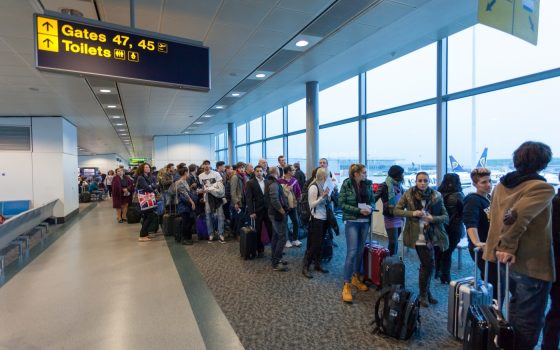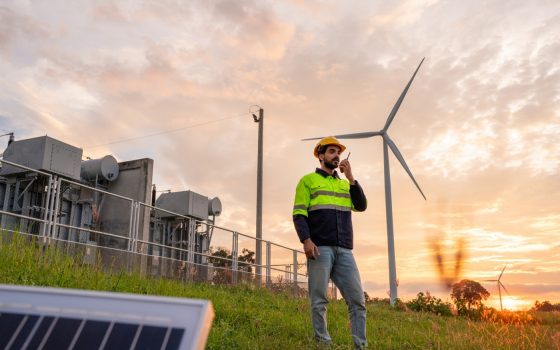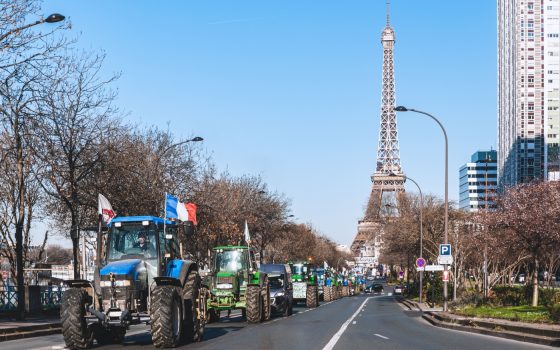It’s time to decide our climate futures
There is a spectrum of possibilities open to us, from collectively decarbonising the economy to ecofascism and climate apartheid.
10 October 2019
Over the last year people have started to take the climate crisis seriously – the science is finally winning the argument. But listening to the science doesn’t automatically provide us with solutions. There is a spectrum of climate futures open to us, from collectively decarbonising the economy to ecofascism and climate apartheid. It’s up to us to shape them. Here, Margaret Welsh looks at where we should start.
In 2012, Superstorm Sandy hit New York, destroying hundreds of thousands of homes and other buildings. Low income and African American residents were hit hardest and stranded without access to healthcare. Large parts of the city were without power for several days. But not the headquarters of Goldman Sachs. While the storm raged across the city, Goldman Sachs was protected by 25,000 sandbags and drew power from its own generator. UN special rapporteur on extreme poverty Philip Alston in a report this year warned that the difference between the storm’s impact on the wealthy multinational company and the poorer residents of New York could be a sign of things to come.
Mainstream environmental talk about climate change has often presented us with two futures: one where we do nothing and create climate chaos (bad), and one where we fully decarbonise and stop it in its tracks (good). But the greenhouse effect isn’t binary — there is a spectrum of climate futures lying in wait. And now that climate crisis seems to have mainstream attention, it’s clear that not all of the responses to it will be positive. It’s time for the climate movement to go beyond just talking about ‘the science’, as if the science presents us with an objective set of solutions. We can’t be technocratic — there are political and moral decisions that will shape our climate future, and decide whether it will be equitable, fair and just.
There are good reasons why the mainstream climate movement ended up in this position. When it’s an uphill battle to even get people to believe you, it’s easy to fall back on asking people to just do something — anything! The general reluctance of people in power to really understand the scale of the problem has meant that for years climate campaigners have just spent time fighting for scraps of any attention. And the climate denialism funded by fossil fuel interests has meant that campaigners have leaned heavily on hard science to back up their points. But they have also replicated the mistakes of the broader environmental movement, which really got going in the 1960s but detached itself from the social justice movements of the time. Instead of thinking about environmental racism, or the impacts of pollution of people’s everyday lives, the movement focused on broad concepts like ‘wilderness’ or ‘the planet’. And the climate movement emerged from this — think how the polar bear on an iceberg became the ubiquitous symbol of climate change. Its dominance suggested that climate change was a story of ‘us’ against ‘the planet’, rather than a story where the people who contributed the most to the climate crisis will not feel its effects.
It’s now shorthand to speak casually about climate chaos in apocalyptic terms. The root of the word ‘apocalypse’ means ‘uncovering’ in Ancient Greek. In our post-apocalyptic stories, a cataclysmic event removes the trappings of wealth, privilege or power from our societies, and reveals our basic human selves. And it feels like there’s a sense of this in some climate work — a nihilistic appeal to the idea that the climate emergency is going to a great leveller that affects us all — rich and poor — alike, and then those polluting billionaires will really know what hit them.
But the UN report that described the effects of Superstorm Sandy says that if we rely too much on the private sector, “We risk a ‘climate apartheid’ scenario where the wealthy pay to escape overheating, hunger and conflict while the rest of the world is left to suffer.” Like Sandy in New York, the impacts of increasingly extreme weather have not been distributed evenly. When wildfires raged across California at the end of 2018, Kim Kardashian-West and Kanye West’s $50 million mansion was successfully defended by private hire firefighters. These private fire-fighting services are operated by insurance companies, and often are only eligible for properties worth at least $1 million. In Miami, the threat of rising sea levels has caused wealthier homeowners to abandon their beachfront properties in favour of those further inland, in areas historically occupied by low-income communities of colour. This process has been dubbed ‘climate gentrification’. Silicon Valley CEOs are buying and building bunkers, often in New Zealand where they hope that the islands’ location and terrain will shield it from some of the effects of climate catastrophe and subsequent social unrest. This is climate adaptation, but only for the rich.
Beyond the threat of ‘climate apartheid’, we face a possible future where the far-right gains increasing amounts of power at the same time as climate catastrophe hits. Historically far-right forces have been climate deniers, but this is beginning to change. European far-right movements are beginning to identify borders as “the environment’s greatest ally”, and proposing a one-child policy for developing countries in order to tackle ‘overpopulation’. The shooter who carried out an attack on two mosques in Christchurch, New Zealand this year called himself an “ethno-nationalist eco-fascist” in his manifesto. Eco-fascism often sees migrants as a threat to the ‘preservation’ of local ecosystems. In tandem, it regards the climate-driven movement of people as something to defend against with ever more violent border regimes. It’s been remarked that, far from not having a climate policy, the wall on the Mexico border is Trump’s climate policy.
Climate writer Kate Aronoff says that “The horror of climate change isn’t in the intrinsic violence of hurricanes or heat waves, but in the ways societies choose to deal with and prepare for them.” Articulating a problem won’t make a just solution inevitably follow — we have to shape the parameters of the solutions ourselves. This means transitioning to a zero-carbon economy in a way that doesn’t create sacrifice zones, where the wealthy can’t buy their way out while the rest of us suffer, and where the transition is just. Donald Trump’s declaration of his wish to buy Greenland was met with bafflement and mockery — but as the melting ice across the Arctic makes fossils fuels and rare earth minerals more accessible, we should resist the colonial disaster capitalism that will swoop in to exploit it.
But we won’t get there by repeating the mistakes of the past. The way we articulate the problem and the way forward matters. Extinction Rebellion describes its demands as “beyond politics” — but presenting your analysis as politically neutral will only support the hegemonic view of the powerful. Groups like the Wretched of the Earth and Reclaim the Power connect the climate crisis to indigenous and migrant struggles. The Out of the Woods collective have documented the risks of ecofascism and its parallels with mainstream environmentalism. We should listen to those who have been working to explain climate change as a relationship of power, and warning against environmental racism.
This is an extract from the New Economics Zine issue 1. Read the full issue here
Topics Climate change Environment Zine






